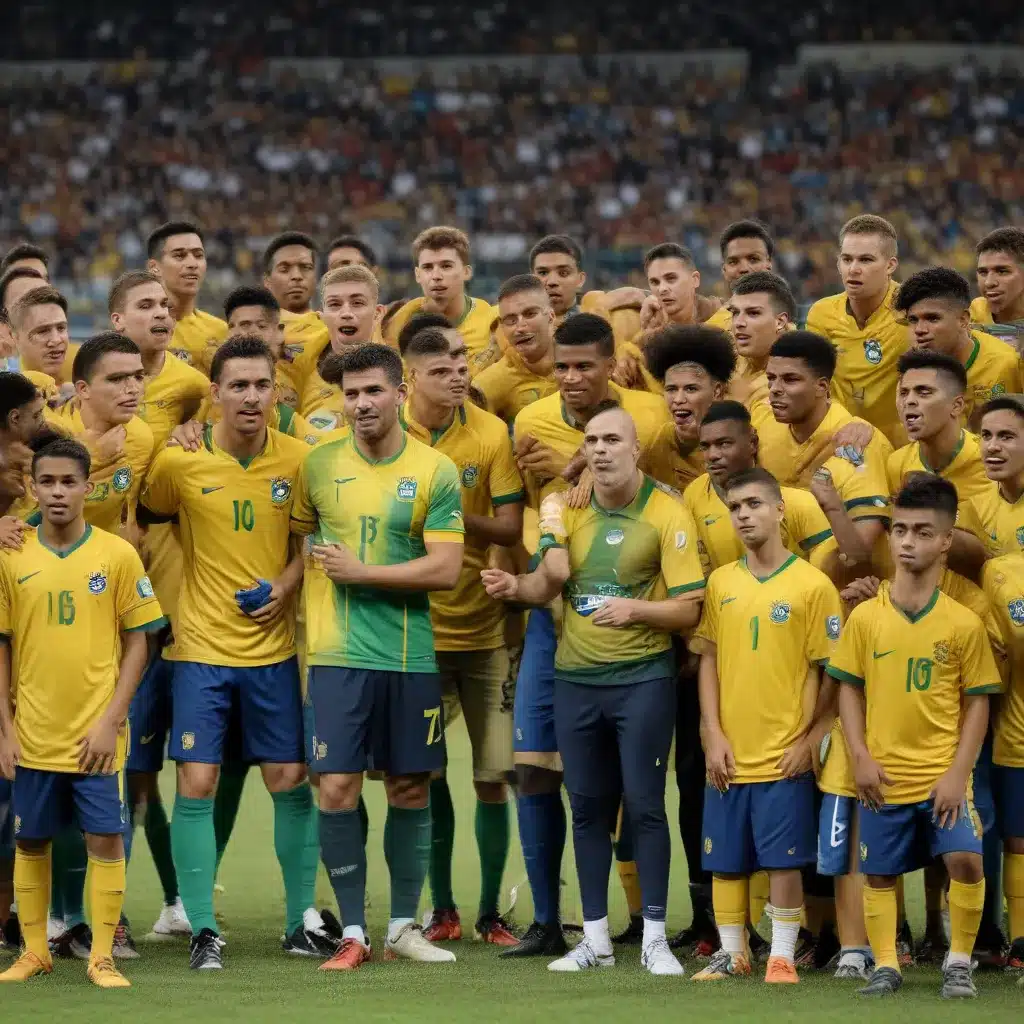
Football Governance in Brazil
Football in Brazil is governed by the Confederação Brasileira de Futebol (CBF), the country’s national football association. However, the sport is largely decentralised, with each of Brazil’s 26 states and the Federal District having its own state-level football federation. These state-level organisations are responsible for organising their own state championships (campeonatos estaduais), which run concurrently with the national Campeonato Brasileiro (or Brasileirão) league.
The state championships hold significant cultural and historical importance in Brazilian football. Storied clubs like Fluminense, Flamengo, Corinthians, and São Paulo have their roots in these state-level competitions, which predate the national league. Many Brazilians remain passionately loyal to their state teams, creating intense regional rivalries and a vibrant fan culture. These state-level competitions also serve as crucial developmental platforms, providing young players with opportunities to showcase their talents before potentially transitioning to the professional ranks.
Coaching Challenges in State-Level Competitions
Coaching at the state-level in Brazil presents a unique set of challenges that differentiate it from the higher-profile national league. Navigating these obstacles requires a nuanced understanding of the local football landscape and the ability to adapt accordingly.
Player Management
One of the primary challenges for state-level coaches is managing their roster depth. Many top players from these state teams are often recruited by wealthier clubs in the Brasileirão, leaving coaches to work with a thinner squad. This can create difficulties in maintaining consistent training regimens and player rotations, as coaches must carefully balance the development of younger talent with the need to remain competitive in the state championship.
Resource Constraints
State-level clubs often operate with limited financial resources compared to their national counterparts. This can manifest in suboptimal training facilities, outdated equipment, and restricted scouting and recruitment budgets. Coaches must be resourceful in maximising the potential of their players within these constraints, often relying on their ability to identify and nurture local talent.
Competitive Dynamics
The state-level competitions are renowned for their intense rivalries and the distinct playing styles that emerge from different regions of Brazil. Coaches must quickly adapt to these regional variations in tactics and player profiles, as they often face opponents with vastly different approaches to the game. Additionally, the talent disparity between the top clubs and smaller teams in these state championships can pose a significant challenge, requiring coaches to devise strategies that account for the uneven playing field.
Tactical Considerations
Adapting to Local Playstyles
Each Brazilian state has its own unique footballing culture, which is reflected in the playing styles of the teams within that region. Coaches must be attuned to these regional differences and be willing to adjust their tactical approach accordingly. For example, the jogo bonito (beautiful game) philosophy of Rio de Janeiro may differ significantly from the more physical and direct style favoured in the industrial heartland of São Paulo.
Strategic Planning
The structure and format of the state championships can also present strategic challenges for coaches. Many of these competitions feature a dense fixture schedule, with teams often playing multiple matches in a short span of time. Effective planning and squad rotation become essential to navigating this congested calendar, ensuring that players remain fresh and focused throughout the tournament.
Developmental Objectives
Youth Development Pathways
The state-level competitions serve as crucial platforms for the development of young Brazilian talent. Coaches must strike a delicate balance between integrating academy players into the first team and providing them with the necessary playing time to hone their skills. Successfully transitioning these promising youngsters to the professional ranks is a key responsibility for state-level coaches.
Promoting Grassroots Engagement
Beyond player development, state-level coaches also play a vital role in engaging with the local community and fostering a strong connection between the club and its supporters. Community outreach initiatives, fan engagement programs, and the promotion of the state team’s identity can all contribute to the growth and sustainability of the sport at the grassroots level.
Professional Development for Coaches
Continuing Education
Coaches working in the state-level competitions must be proactive in their own professional development. Obtaining and maintaining coaching licenses and certifications, as well as actively participating in knowledge-sharing networks, can help these coaches stay abreast of the latest tactical and technical advancements in the game.
Career Progression
The state-level competitions can also serve as a springboard for coaches aspiring to work at the national level. However, navigating this career transition can be challenging, as coaches must balance their ambition for advancement with the need to maintain stability and continuity within their current state-level club. Successful coaches in Brazil often demonstrate a keen understanding of the nuances of the local football landscape and the ability to adapt their approach accordingly.
In conclusion, coaching at the state-level in Brazil requires a unique blend of tactical acumen, player management skills, and an appreciation for the diverse footballing cultures that exist within the country. By addressing the challenges posed by limited resources, competitive imbalances, and the need to develop young talent, these coaches play a vital role in shaping the future of the sport in their respective regions. Their ability to adapt and thrive in this dynamic environment is a testament to the depth and richness of Brazil’s football heritage.
For more insights into the fascinating world of Brazilian football, be sure to visit https://brazilian-football.com/.

